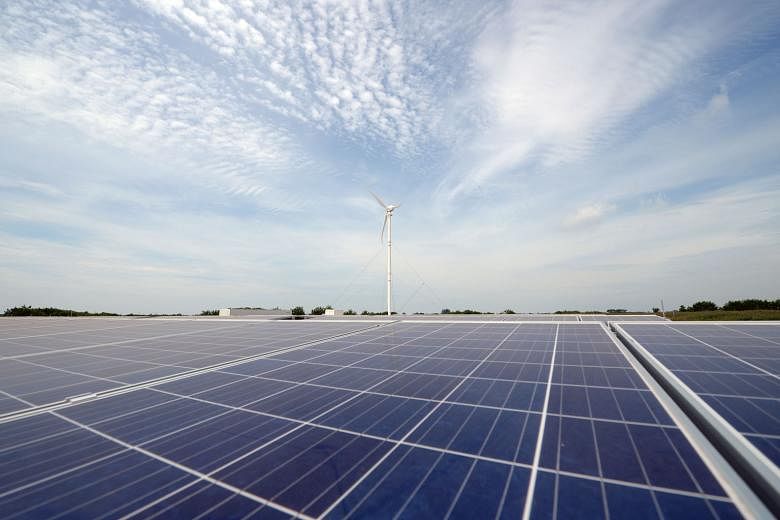Climate change brings about not just great challenges but also opportunities, Deputy Prime Minister and Coordinating Minister for National Security Teo Chee Hean said yesterday.
"Climate change is one of the greatest global challenges of our time," he said, noting that it calls for a global solution, where governments, the private sector, civil society and private citizens work in unison.
But he stressed that climate change is not only about challenges and constraints; it also provides strong incentives for entrepreneurship, research and development, and creative problem-solving.
Singapore, in particular, is well positioned to become a green growth hub and take advantage of new opportunities, he said.
"Through collaboration with industry partners, new knowledge and solutions created in water, energy, land management and food resilience can offer new business and economic opportunities," he said.
Under the country's Research, Innovation and Enterprise 2020 plan for 2016 to 2020, $900 million has been allocated to develop urban sustainability solutions.
Singapore is already among the 20 most carbon-efficient countries in the world, and the Republic will continue to improve its carbon efficiency through a range of measures, said DPM Teo.
This includes further encouraging the use of public transport, building the next generation of super low-energy green buildings and using natural gas rather than more carbon-intensive fossil fuels for power generation.
"We have also taken actions to cost-effectively harness as much renewable energy as we can," he said. Examples include floating solar panels on reservoirs and at sea.
Singapore also operates waste-to-energy plants that generate an average of 440 kilowatt hour (kwh) per tonne of waste incinerated. This provides 1.2 terawatt hour of power a year, or about 2 per cent to 3 per cent of Singapore's electricity consumption.
DPM Teo was speaking at the launch of the first official chapter of the Carbon Pricing Leadership Coalition, CPLC Singapore, at the Global Compact Network Singapore summit at the Suntec Singapore Convention and Exhibition Centre.
An initiative of the Global Compact Network Singapore (GCNS) and the World Bank Group's Carbon Pricing Leadership Coalition (CPLC), CPLC Singapore aims to encourage the private sector to collaborate through using internal carbon pricing as a mechanism to reduce emissions, beyond Singapore's upcoming carbon tax next year.
The CPLC, which was launched in 2015 at the United Nations climate change conference COP21 in Paris, is a voluntary partnership of governments, businesses and organisations that agree to expand effective carbon-pricing policies that can maintain competitiveness, create jobs, encourage innovation and deliver meaningful emissions reductions.
DPM Teo said that GCNS is playing an important role in galvanising the corporate sector to make sustainability a core part of its business strategies.
A spokesman for the National Climate Change Secretariat said: "There is greater urgency for everyone, including businesses, to proactively mitigate climate-related risks, such as by reducing carbon emissions.
"CPLC Singapore can help more businesses understand carbon pricing and how it needs to be part of their investment and operation decisions. In turn, businesses may achieve greater competitiveness, and contribute to a more sustainable future for all."
Mr John Roome, senior director for climate change at the World Bank, said: "Through its recent adoption of a carbon tax, the Government of Singapore is leading the Asean region in carbon pricing.
"CPLC Singapore will facilitate dialogue, knowledge sharing and collaboration on carbon pricing among leaders of the private sector and Government. This, in turn, will help encourage cleaner investments and reduced emissions."

